Is Organic Fertilizer Safe for Pets?
Gardening and maintaining a yard can be a fun and rewarding pastime (or sometimes chore), but no homeowner wants to take care of their lawn at the risk of harming themselves, a family member, or even their pets.
Updated Dec. 19 2019, 1:31 p.m. ET
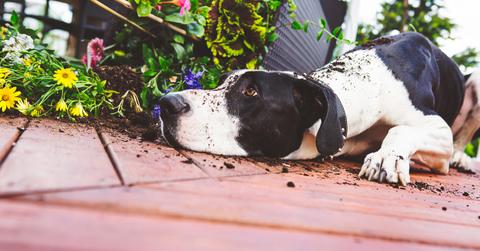
Gardening and maintaining a yard can be a fun and rewarding pastime (or sometimes chore), but no homeowner wants to take care of their lawn at the risk of harming themselves, a family member, or even their pets. Which is exactly why many people wonder: Is organic fertilizer safe? Is it safe for kids? And if they are also pet owners, is it safe for pets?
You are not alone if you hear the word “organic” and automatically think it’s the better, safer, more sustainable option. But is it actually true?
Safety is a big component of fertilizing lawns and gardens and you may have heard that fertilizers can have some nasty side effects. According to Environment.co.za, fertilizers deplete the quality of the soil, cause eutrophication (defined as excessive richness of nutrients, frequently due to runoff from the land, which causes a dense growth of plant life and death of animal life from lack of oxygen), climate change, and of course, human health risks such as cancer, blue baby syndrome, issues with the lungs, kidneys, and liver, and other chronic diseases.
It begs the question: If fertilizers can have so much negative impact, then is organic fertilizer the way to go? And if it is, how safe are our pets if we use organic fertilizers instead of the traditional stuff?
Are Organic Fertilizers Safe?
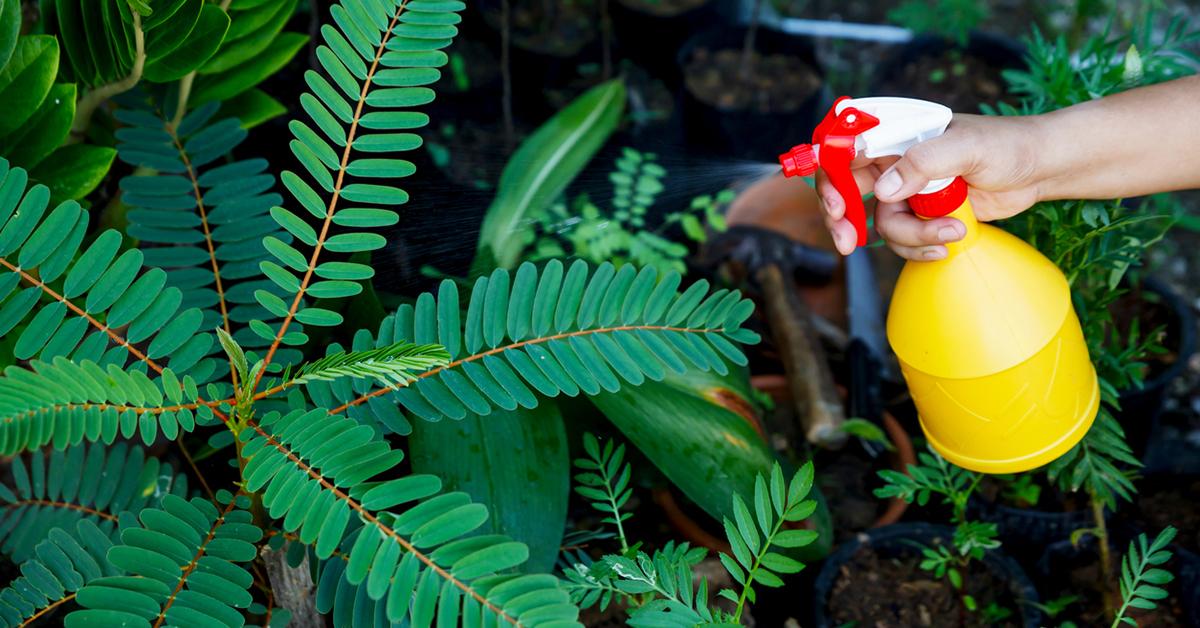
Fertilizer is most commonly used to improve the state of a person’s lawn and to kill off unwanted growth like weeds. However, it’s well-documented that fertilizers can pose some serious health risks, as fertilizer can cause irritation in the eyes, skin, or respiratory system, as well as even cause cancer or developmental issues in children and infants. If fertilizer is ingested, then its side effects are particularly grim.
Many fertilizers contain ingredients classified as toxins. Most of the more popular fertilizers also can contain synthetic chemical ingredients that are not the safest. This causes, of course, many people to be concerned with not only the health of their plants and the environment, but with their own health, their family’s health, and their pets’ health as well.
So, is organic fertilizer the safer alternative? Organic fertilizers typically use components like worm compost, gypsum, lime, and manure to fertilize lawns without the detrimental health side effects of the traditional chemicals. As organic fertilizers are generally derived from plant or animal products, these alternatives provide the nitrogen levels gardens and lawns need, without the nasty repercussions.
In short, organic is widely hailed as the safer alternative to traditional fertilizers. Organic fertilizers might also be healthier for your plants, too. As they are slow-release fertilizers, you won’t have to worry about long-term chemical build-ups that can be toxic to lawns and plants. In conventional fertilizers, this can often happen with various chemicals or even salt.
Are Organic Fertilizers Safe for Pets?
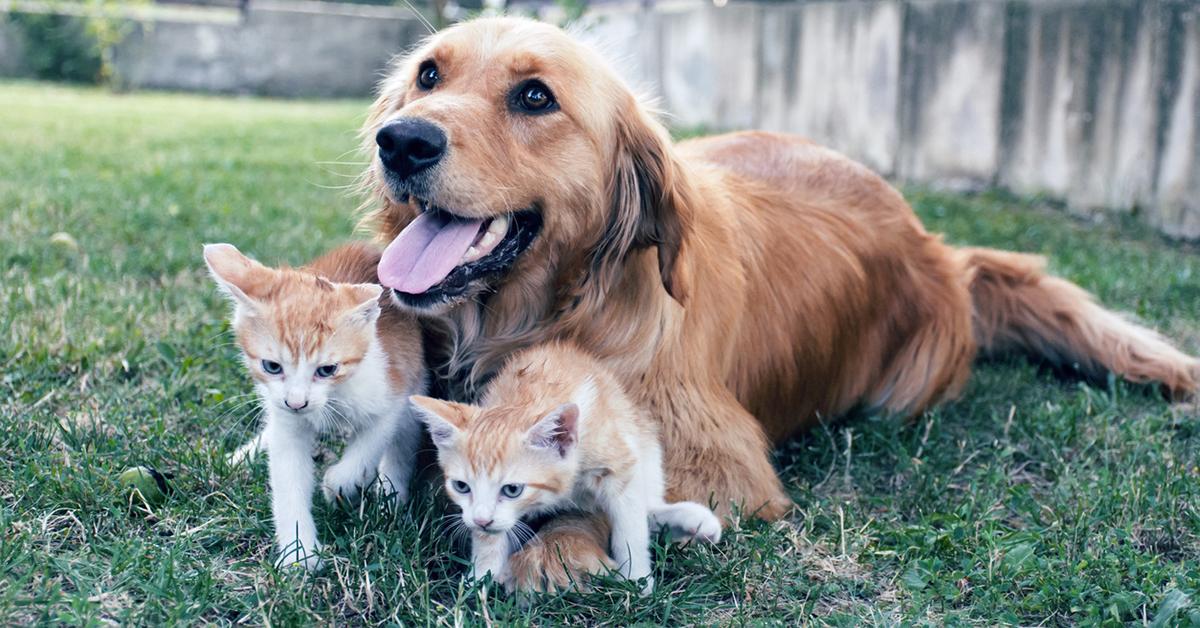
Going organic is often the answer to most health and sustainability questions. However, organic fertilizer is still not safe for pets. In fact, despite being derived from plant and animal byproducts, organic fertilizer can still harm pets.
No fertilizer is safe to ingest — even organic fertilizer — and pets, particularly dogs, are at an increased risk for finding the smell (and maybe even taste) of fertilizer enticing. Organic fertilizer made from meals — like bone, blood, or fish meals — can smell alluring to dogs, causing them to ingest the harmful fertilizer. If, by chance, the organic fertilizer is mixed with another kind of fertilizer, your pet runs the risk of being poisoned by two different toxic substances.
Organic fertilizers made from various meals can cause terrible symptoms in pets such as diarrhea, vomiting, inflammation of the pancreas, and foreign body obstructions. Pets who ingest organic (or other kinds of) fertilizer should be taken to the veterinarian or emergency veterinarian immediately. A vet might treat your pet’s symptoms with fluid therapy, anti-vomiting medication, an X-ray (if there’s an obstruction), or by inducing vomiting. If your pet has ingested a small amount, the mild symptoms might be able to be mitigated by changing the pet to a bland diet. In a worst-case scenario, a pet who ingested fertilizer might need their stomach pumped.
However, if organic fertilizer is not ingested, it can be considered pet- and kid-friendly. After applying fertilizer to your lawn, read the instructions for how long you need to wait before introducing pets and children to the affected area again.
Are Organic Fertilizers Safe for Dogs?
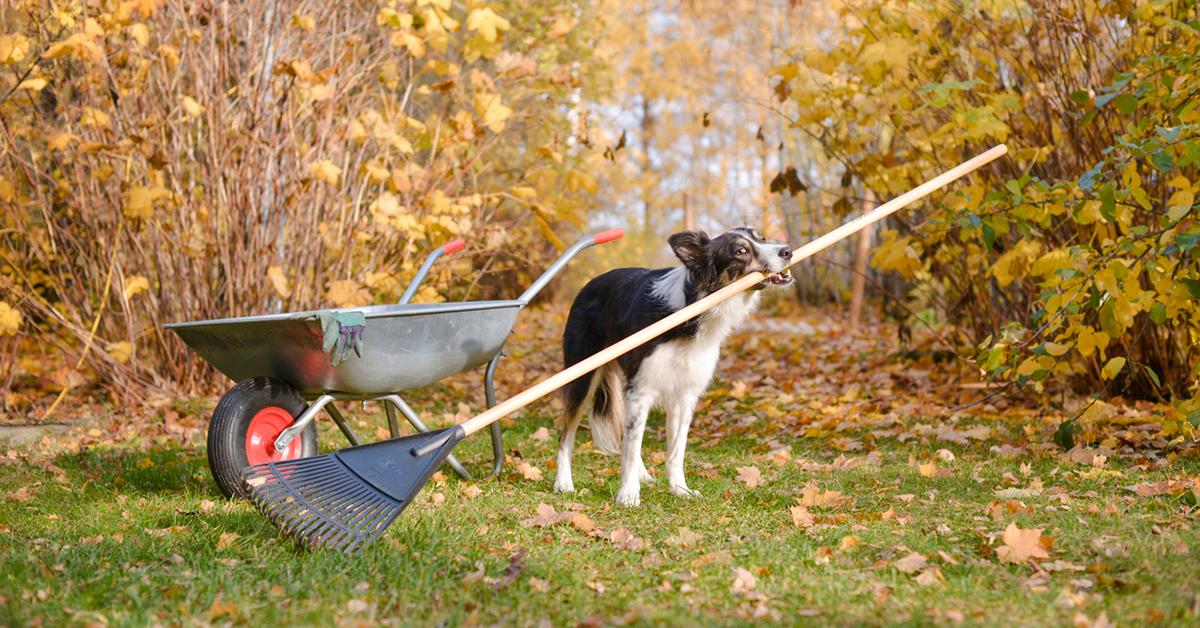
Organic fertilizers can pose a health threat to dogs. Dogs are curious sniffers and taste-testers, and the smell of organic fertilizer might entice a dog enough to want to take a bite. If ingested, any kind of fertilizer could be toxic — even organic.
If your dog ingests fertilizer of any kind, you should consult your veterinarian immediately. Your vet might treat the symptoms by taking an X-ray, suggesting a bland diet, or by pumping the dog’s stomach.
While even organic fertilizer is harmful to ingest, organic fertilizers are not harmful to dogs otherwise. It’s when it’s ingested that fertilizer becomes a problem. Organic fertilizers typically have shorter wait times before pets and kids can be exposed. Check the label of your fertilizer for more accurate instructions and make sure the lawn dries fully before allowing pets or children back on the lawn.
How Long After Fertilizing Lawn Is It Safe for Pets?
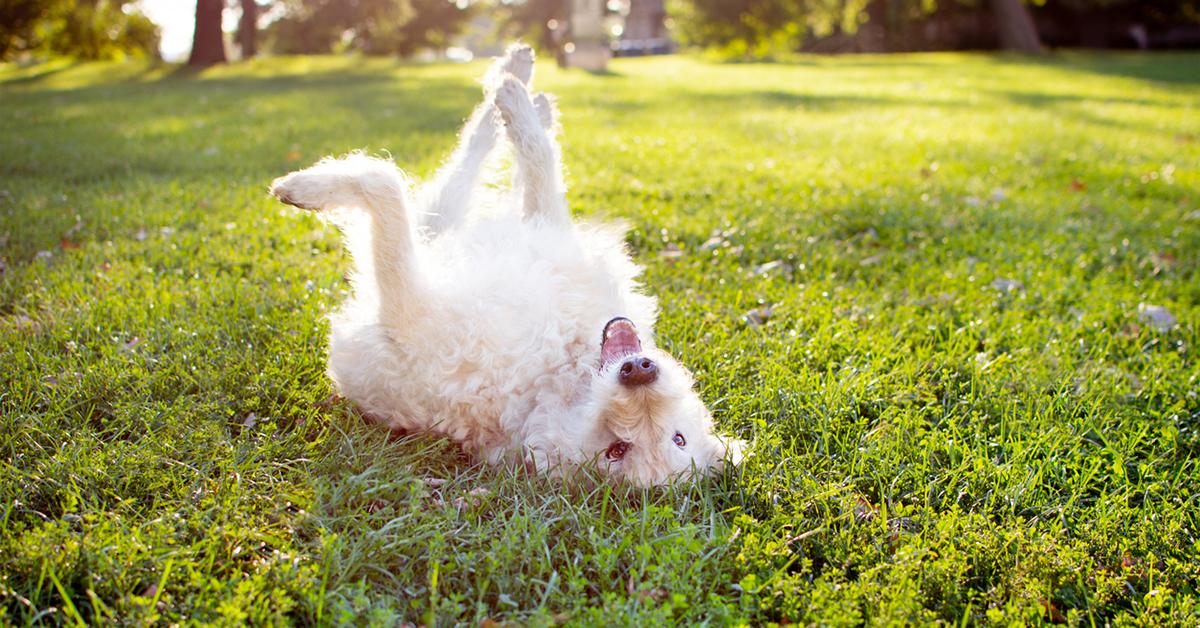
How long you have to wait before allowing pets back on the lawn after a fertilizer application depends on the specific kind of organic fertilizer you applied. While organic fertilizers generally have a shorter wait period, it is best to wait at least 48 hours after the fertilizer application. Of course, the weather can affect the wait time; if it rains after fertilizer application, you might need to reapply the fertilizer, which would make your wait time even longer.
It is critical to apply the fertilizer specifically as the manufacturer says to. If you allow pets onto the lawn before the application of fertilizer is fully dry, residue could get picked up on the animals’ fur. Children can also pick up residue while walking or playing, since they are lower to the ground. When applying fertilizer — even organic fertilizer — it is important to follow the directions precisely, apply the appropriate amount and no more, and to wait for at least 48 hours after the application before pets and children venture into the area.
No matter which organic fertilizer you use to apply to your lawn, the package’s directions should tell you exactly when it is safe for pets and other people to step on the grass.
Are Organic Fertilizers Safer Than Inorganic?

Organic fertilizers may pose less health risks to both the environment and to humans. However, it is crucial to note than any fertilizer — even organic fertilizer — is extremely toxic when ingested. That’s why organic fertilizer is not necessarily safer for pets. Pets are generally at a higher risk to ingest unknown substances outside and therefore, should be kept from the applied area for at least 48 hours and supervised.
Can Organic Fertilizer Burn My Plants?
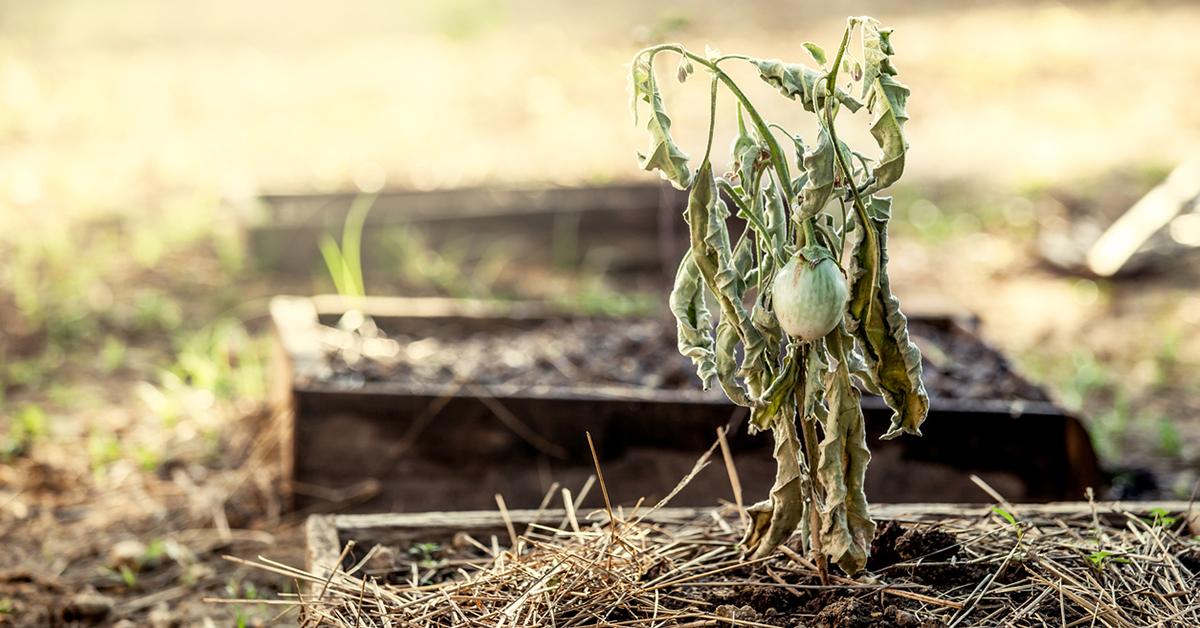
According to Milorganite, a brand of slow-release nitrogen fertilizer, fertilizer that is derived from an organic source most likely will not burn your plants. Chemical burn, which is categorized by brown, dead grass, is caused by the chemicals and ingredients in synthetic fertilizers. Because organic fertilizers are typically not made with synthetic ingredients, organic fertilizer should not burn your plants.
Can Organic Fertilizer Burn My Lawn?
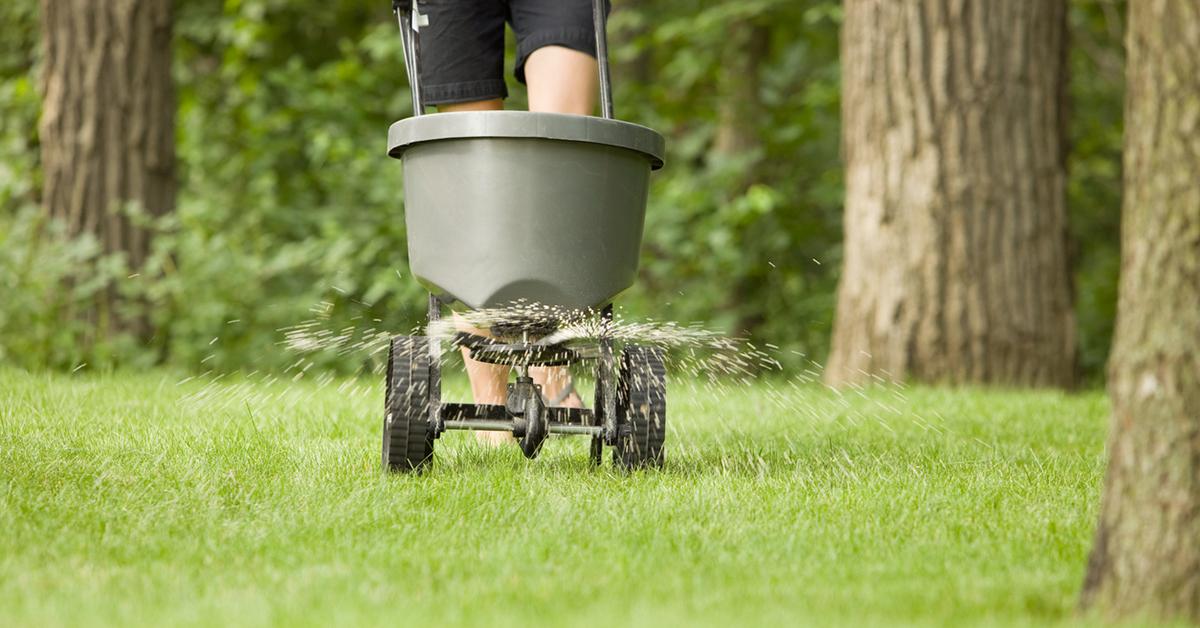
Organic fertilizer should not burn your plants or your lawn. This is because chemical burn is generally caused by fertilizers made from synthetic ingredients and organic fertilizers are typically not comprised of synthetics. For this reason, organic fertilizer should keep your lawn looking green, natural, and free of brown, burned, dead grass.